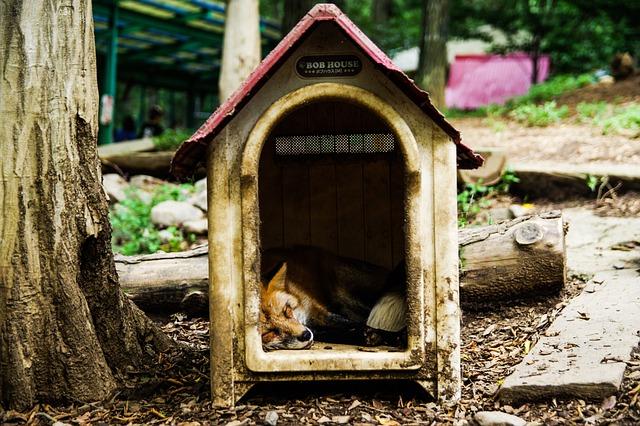7 Year Old Waking Up Too Early: Parenting Tips for Better Sleep!

Are early mornings starting to feel like an eternal struggle in your household? If your 7-year-old is bouncing out of bed before the crack of dawn, you’re not alone. We understand the challenges parents face when it comes to their child’s sleep schedule. That’s why we’ve compiled a comprehensive guide filled with proven parenting tips to help your little one sleep in a little longer. From setting a consistent bedtime routine to creating a sleep-friendly environment, we’ve got you covered. Get ready to bid those early wake-up calls goodbye and embrace more restful mornings for the whole family. It’s time to reclaim your well-deserved beauty sleep!
Contents
- 1. Understanding the Early Rising Phenomenon: Unveiling the Science Behind Children’s Sleep Patterns
- 2. The Impact of Sleep Deprivation on a 7 Year Old: Discovering the Emotional and Physical Consequences
- 3. Creating the Ideal Sleep Environment: Designing a Calming Oasis for Your Child’s Restful Nights
- 4. Consistency is Key: Establishing a Bedtime Routine to Encourage Longer Sleep Duration
- 5. Nurturing Healthy Sleep Habits: Teach Your 7 Year Old How to Self-Soothe and Fall Back Asleep
- 6. Optimizing Daytime Activities: Balancing Energy Expenditure and Quality Rest for a Better Night’s Sleep
- 7. Adjusting Bedtime and Wake Time: Fine-Tuning the Sleep Schedule to Align with Your Child’s Natural Rhythms
- 8. Managing Light Exposure: Controlling Light Intake to Regulate Circadian Rhythms and Minimize Early Waking
- 9. Dietary Considerations: Exploring the Impact of Nutrition on Sleep and Adjusting Mealtime Choices
- Impact of Nutrition on Sleep and Adjusting Mealtime Choices
- 10. Seeking Professional Guidance: When to Consult a Pediatric Sleep Specialist for 7 Year Old’s Early Rising
1. Understanding the Early Rising Phenomenon: Unveiling the Science Behind Children’s Sleep Patterns
Is your 7-year-old constantly waking up too early, leaving you feeling exhausted and wondering why? Let’s dive into the science behind children’s sleep patterns to shed some light on this perplexing phenomenon and provide you with effective parenting tips for a better night’s sleep!
Children’s sleep patterns can be influenced by various factors, including their age, internal body clock, and external environment. Understanding these elements can help you address the early rising issue more effectively.
1. Age
The sleep needs of children evolve as they grow older. While babies require more sleep, as they reach the age of 7, their need for sleep decreases. However, this doesn’t necessarily mean they will sleep in later. In fact, older children often wake up earlier due to their internal body clock.
2. Body Clock
A strong internal body clock, also known as the circadian rhythm, can significantly impact a child’s sleep-wake cycle. In younger children, the body clock tends to favor longer sleep during the night and shorter naps during the day. As they age, this body clock can gradually shift, resulting in earlier wake-up times.
3. External Environment
The environment in which your child sleeps can influence their sleep patterns as well. Factors such as noise, light, temperature, and even the presence of electronic devices can disrupt their sleep and cause early morning awakenings. Creating a sleep-friendly environment by minimizing distractions and maintaining a comfortable temperature can help promote longer and more restful sleep.
By considering these factors and implementing some simple parenting tips, you can help your 7-year-old get the sleep they need and prevent them from waking up too early.
2. The Impact of Sleep Deprivation on a 7 Year Old: Discovering the Emotional and Physical Consequences
Have you noticed your 7 year old waking up too early and struggling to get the rest they need? It’s important to address this issue as sleep deprivation can have significant effects on their emotional and physical well-being. Lack of proper sleep can lead to a host of problems that may impact various aspects of your child’s life. Let’s explore the emotional and physical consequences of sleep deprivation in a 7 year old, along with some helpful parenting tips to promote better sleep!
Emotional Consequences
1. Irritability and Mood Swings: Sleep deprivation can make your child irritable and prone to mood swings. They may exhibit increased aggression, easily get frustrated, or have difficulty managing their emotions.
2. Poor Concentration and Attention: Lack of adequate sleep can affect your child’s ability to concentrate and focus, leading to difficulties in school and other activities that require sustained attention.
3. Emotional Instability: Sleep deprivation can disrupt the regulation of emotions, causing your child to experience more intense emotional reactions and have difficulty coping with stress.
Physical Consequences
1. Weakened Immune System: Insufficient sleep weakens the immune system, making your child more susceptible to illnesses and infections.
2. Growth and Development: Sleep is vital for your child’s growth and development. Lack of proper rest can interfere with the production of growth hormones, potentially affecting their overall physical development.
3. Increased Risk of Obesity: Research suggests that inadequate sleep in children can contribute to weight gain and obesity. Sleep deprivation affects the regulation of appetite-controlling hormones, leading to a higher likelihood of overeating.
Parenting Tips for Better Sleep
- Establish a Consistent Bedtime Routine: A predictable routine can signal to your child that it’s time to wind down and prepare for sleep. Include activities such as reading a bedtime story or engaging in calm, relaxing activities.
- Create a Sleep-Friendly Environment: Make sure your child’s bedroom is quiet, dark, and at a comfortable temperature. Consider using blackout curtains, white noise machines, or a cozy blanket to create a soothing atmosphere.
- Limit Screen Time Before Bed: Avoid exposing your child to screens at least an hour before bedtime. The blue light emitted by electronic devices can interfere with the production of melatonin, the hormone responsible for regulating sleep.
- Encourage Regular Exercise: Physical activity during the day can help tire your child out and promote better sleep. Encourage outdoor play or incorporate fun exercises into their daily routine.
- Ensure a Balanced Diet: A nutritious diet plays a crucial role in supporting healthy sleep patterns. Limit sugary and caffeinated beverages, especially closer to bedtime, and include foods rich in sleep-promoting nutrients like magnesium and tryptophan.
By understanding the emotional and physical consequences of sleep deprivation and implementing these parenting tips, you can help your 7 year old get the quality sleep they need for optimal well-being. Remember, a well-rested child is a happier and healthier child!
3. Creating the Ideal Sleep Environment: Designing a Calming Oasis for Your Child’s Restful Nights
To help your 7-year-old get better sleep and stop waking up too early, it’s important to create an ideal sleep environment that promotes relaxation and tranquility. Designing a calming oasis for your child’s restful nights can make a significant difference in their sleep patterns and overall well-being. Here are some parenting tips to create the perfect sleep environment:
1. Temperature and Lighting:
– Keep the room cool, ideally between 65-72°F, as a cooler temperature promotes better sleep.
– Ensure the room is adequately darkened to signal bedtime. Consider using blackout curtains or an eye mask to block out any unwanted light.
2. Comfortable Bedding:
– Invest in a comfortable and supportive mattress that suits your child’s needs and preferences.
– Use cozy, soft bedding made of natural fibers like cotton or bamboo to promote comfort and breathability.
– Avoid excessive pillows or stuffed animals in the bed, as they can disrupt sleep and cause discomfort.
3. Noise and Sound:
– Create a quiet environment by minimizing external noises that may disturb your child’s sleep. Use white noise machines or gentle, soothing music to mask any disruptive sounds.
– Establish a routine of calm activities before bedtime, such as reading a book, listening to calming music, or practicing deep breathing exercises.
4. Declutter and Organize:
– Simplify the bedroom by decluttering and creating a peaceful space. Remove any distractions or toys that may trigger excitement or disrupt sleep.
– Use storage solutions like bins, shelves, or toy hammocks to keep the room tidy and organized, promoting a sense of calm.
By implementing these tips and tailoring them to your child’s specific needs, you can create an ideal sleep environment that fosters restful nights and helps your 7-year-old wake up feeling refreshed and ready for the day ahead. Remember, consistency is key, so stick to a bedtime routine and make adjustments as necessary to encourage better sleep habits.
4. Consistency is Key: Establishing a Bedtime Routine to Encourage Longer Sleep Duration
Creating a consistent bedtime routine for your 7-year-old can help encourage longer sleep duration and prevent them from waking up too early. Establishing a routine can signal to their body that it’s time to wind down and prepare for sleep. Here are some tips to help you create a successful bedtime routine:
1. Start with a regular bedtime: Set a specific time for your child to go to bed every night. This helps regulate their internal clock and make falling asleep easier.
2. Wind down before bed: About 30 minutes before bedtime, encourage quiet activities that promote relaxation. This can include reading a book together, taking a warm bath, or practicing deep breathing exercises.
3. Create a sleep-friendly environment: Make sure your child’s bedroom is dark, quiet, and at a comfortable temperature. Consider using blackout curtains, a white noise machine, or a fan to help create a calming atmosphere.
4. Limit screen time before bed: The blue light emitted by screens can interfere with sleep. Encourage your child to avoid screens, such as tablets or smartphones, at least an hour before bedtime.
5. Encourage a consistent wake-up time: Even on weekends or days off, try to keep your child’s wake-up time consistent. This helps regulate their sleep patterns and ensures they get enough rest.
By establishing a consistent bedtime routine, you can help your 7-year-old sleep better and wake up at a more reasonable hour. Remember to be patient and consistent with the routine to see the best results. Good luck!
5. Nurturing Healthy Sleep Habits: Teach Your 7 Year Old How to Self-Soothe and Fall Back Asleep
In order to help your 7-year-old sleep better and avoid waking up too early, it is important to teach them how to self-soothe and fall back asleep. Here are some parenting tips to nurture healthy sleep habits in your child:
1. Establish a consistent bedtime routine: A predictable routine before bed helps signal to your child that it is time to wind down and prepare for sleep. This can include activities such as reading a book, taking a warm bath, or listening to calming music. Be consistent with the routine to establish a sleep schedule that suits your child’s needs.
2. Create a sleep-friendly environment: Ensure that your child’s bedroom is conducive to sleep by making it dark, quiet, and cool. Consider using blackout curtains, white noise machines, or a comfortable mattress to create a soothing atmosphere. Encourage your child to sleep with their favorite toy or blanket for added comfort.
3. Teach self-soothing techniques: Help your child learn how to fall back asleep on their own when they wake up too early. Teach them relaxation techniques such as deep breathing, visualizations, or counting sheep. Encourage them to stay in bed and try these techniques before seeking your help.
Remember, consistency is key when it comes to improving sleep habits. Remain patient and supportive as your child learns to self-soothe and establish a healthy sleep routine. With time, they will develop the skills they need to sleep soundly and wake up refreshed in the morning.
6. Optimizing Daytime Activities: Balancing Energy Expenditure and Quality Rest for a Better Night’s Sleep
Research has shown that quality sleep is essential for a child’s overall wellbeing and development. If you find yourself dealing with a 7-year-old who constantly wakes up too early, it may be helpful to optimize their daytime activities to ensure they are expending enough energy and getting the rest they need for a better night’s sleep. Here are some parenting tips to help your child sleep better.
1. Encourage physical activity: Engaging in regular physical activity during the day can help your child expend their energy and promote a better night’s sleep. Encourage them to participate in activities such as cycling, swimming, or playing outdoor games. Physical activity not only tires them out but also helps in improving their mood and overall health.
2. Establish a bedtime routine: Creating a consistent bedtime routine can signal to your child’s body that it’s time to wind down and prepare for sleep. Include activities that promote relaxation such as reading a book, taking a warm bath, or listening to soothing music. Stick to the same routine every night to establish a sleep schedule.
3. Limit screen time before bed: The blue light emitted by screens can affect the production of melatonin, a hormone that regulates sleep-wake cycles. Make it a habit to limit your child’s exposure to screens, such as TV, tablets, and smartphones, at least an hour before bedtime. Instead, encourage activities like reading or puzzles to help them unwind.
To help you visualize your child’s sleep routine, here’s a sample table you can use:
| Activity | Duration |
|---|---|
| Physical Activity | 60 minutes |
| Wind Down Activities | 20 minutes |
| Screen Time | None within 1 hour of bedtime |
| Sleep | 8-10 hours |
Remember, every child is unique, and it may take some trial and error to find the right balance of activities and routines that work for your child. By optimizing their daytime activities and promoting a consistent bedtime routine, you can help your 7-year-old get the quality rest they need for a better night’s sleep.
7. Adjusting Bedtime and Wake Time: Fine-Tuning the Sleep Schedule to Align with Your Child’s Natural Rhythms
Having a 7-year-old that wakes up too early can be a challenge for both the child and the parent. However, by adjusting bedtime and wake time, you can fine-tune their sleep schedule to align with their natural rhythms and ensure a better night’s rest for everyone. Here are some parenting tips that can help:
1. Gradually Shift Bedtime
To help your child adjust to a later wake time, gradually shift their bedtime by 15 minutes each day. This will help their body clock slowly adapt to the new schedule. Stick to this adjusted bedtime consistently, even on weekends, to maintain a stable sleep routine.
2. Create a Relaxing Bedtime Routine
A consistent bedtime routine signals to your child that it’s time to wind down and prepare for sleep. Include activities like reading a book, taking a warm bath, or practicing relaxation techniques. Avoid stimulating activities or screen time before bed, as these can interfere with falling asleep.
3. Ensure a Sleep-Friendly Environment
Make sure your child’s bedroom is conducive to sleep. Keep the room cool, dark, and quiet. Consider using blackout curtains, white noise machines, or earplugs if necessary. Comfortable bedding, including a supportive mattress and pillow, can also promote better sleep.
4. Encourage Morning Light Exposure
Expose your child to natural light as soon as they wake up. This helps regulate their internal clock and signals that it’s time to start the day. Open the curtains, take a morning walk outside, or have breakfast near a sunny window. Limit exposure to bright lights in the evening, as they can interfere with melatonin production.
5. Stay Consistent and Be Patient
Adjusting sleep schedules takes time, so be patient with the process. Consistency is key to success. Stick to the new bedtime and wake time routine, even if your child resists in the beginning. With time, their body will adjust and the early waking will become a thing of the past.
By following these tips, you can help your 7-year-old establish a healthy sleep schedule and improve their sleep quality. Remember, good sleep is essential for their overall well-being and development!
8. Managing Light Exposure: Controlling Light Intake to Regulate Circadian Rhythms and Minimize Early Waking
One crucial factor in regulating your child’s sleep patterns is managing their exposure to light. Light is a powerful cue that signals our bodies to be awake and alert, making it especially important for maintaining healthy circadian rhythms. If your 7-year-old is waking up too early, here are some practical parenting tips to help you optimize their light intake and improve their sleep quality:
1. Use blackout curtains or blinds: These can help block out excessive light from outside sources, such as street lamps or early morning sunlight, that may be disrupting your child’s sleep. Creating a dark and cozy sleep environment can promote longer and more restful sleep.
2.Use dim lights in the evening: As bedtime approaches, gradually transition your child to a darker environment by dimming the lights in their bedroom and throughout the house. This signals to their brain that it’s time to wind down and prepares them for sleep.
3. Limit screen time before bed: The blue light emitted by electronic devices like smartphones, tablets, and TVs can interfere with the production of melatonin, a hormone that helps regulate sleep. Set a screen time curfew of at least one hour before bedtime to allow your child’s body to naturally prepare for sleep.
4. Encourage natural light exposure during the day: Exposing your child to natural daylight during the daytime can help regulate their circadian rhythm and promote wakefulness. Encourage outdoor activities or open up the blinds to let the sunlight in. However, make sure to avoid direct exposure to bright sunlight in the late evening, as this can delay the onset of sleep.
By effectively managing your child’s light exposure, you can help regulate their circadian rhythms, minimize early waking, and promote better sleep for both you and your 7-year-old. Remember, establishing and maintaining healthy sleep habits is a gradual process, so be patient and consistent with your efforts. Your child will thank you for it in the form of improved sleep quality and a happier, well-rested demeanor!
9. Dietary Considerations: Exploring the Impact of Nutrition on Sleep and Adjusting Mealtime Choices
Impact of Nutrition on Sleep and Adjusting Mealtime Choices
When our children’s sleep patterns are disrupted, it can be a challenge for the whole family. One factor that often goes unnoticed is the impact of nutrition on sleep. What our kids eat can directly influence their sleep quality and patterns. By making some simple adjustments to their mealtime choices, you can help your 7-year-old wake up feeling refreshed and ready to take on the day!
Choosing Sleep-Enhancing Foods
The foods we consume before bedtime can either promote or hinder sleep. Here are some sleep-enhancing options to consider:
- Fruits: Encourage your child to enjoy a small bowl of cherries or a banana before bed. These fruits contain natural melatonin, which helps regulate sleep-wake cycles.
- Whole Grains: Opt for whole wheat bread or oatmeal for dinner as they are rich in magnesium, which promotes relaxation and helps with falling asleep faster.
- Protein: Include a source of protein with their evening meal, such as lean chicken or tofu. Protein contains tryptophan, an amino acid that helps produce serotonin, a hormone that aids in sleep regulation.
Avoiding Sleep-Disrupting Foods
Equally important is knowing which foods to avoid before bedtime as they can interfere with sleep. Here are some examples:
- Sugary Snacks: Limit sugary treats, sodas, and desserts in the evening. These can cause blood sugar spikes and crashes, leading to restless sleep.
- Caffeine and Chocolate: Avoid serving caffeinated beverages like tea, coffee, and hot chocolate close to bedtime. These stimulate the nervous system and can make it difficult for your child to fall asleep.
- Spicy and Greasy Foods: Heavy and spicy meals can cause indigestion and discomfort, leading to disrupted sleep. Try to have these earlier in the evening.
By being mindful of the impact of nutrition on your child’s sleep and making adjusted mealtime choices, you can help them establish healthy sleep habits and wake up feeling energized!
10. Seeking Professional Guidance: When to Consult a Pediatric Sleep Specialist for 7 Year Old’s Early Rising
When your 7-year-old is consistently waking up too early, it can leave you feeling exhausted and frustrated. While early rising can be a common issue for children, it’s important to address it so that both you and your child can get the quality sleep you need. In this post, we’ll explore some parenting tips that can help improve your 7-year-old’s sleep and reduce those early morning wake-ups.
1. Establish a Consistent Bedtime Routine: A regular bedtime routine can signal to your child that it’s time to wind down and prepare for sleep. Consider incorporating calming activities such as reading a book or taking a warm bath. Stick to the same routine every night to reinforce the message that it’s time for sleep.
2. Create a Restful Sleep Environment: Make sure your child’s bedroom is conducive to sleep. Ideally, the room should be cool, quiet, and dark. Consider using blackout shades or curtains to block out early morning light. You can also use a white noise machine or a fan to drown out any background noise that may disturb your child’s sleep.
3. Limit Electronic Devices Before Bed: The blue light emitted by electronic devices can interfere with your child’s sleep patterns. Avoid allowing your child to use electronic devices, such as tablets or smartphones, for at least one hour before bedtime. Encourage quiet activities such as reading or drawing instead.
4. Adjust Bedtime and Wake-Up Time Gradually: If your child’s wake-up time is consistently too early, you can gradually shift their bedtime and wake-up time by 15 minutes each day until you reach your desired schedule. This gradual adjustment allows your child’s body to adapt to the new sleep routine without causing too much disruption.
Remember, it’s important to be patient and consistent when implementing these tips. Every child is different, and it may take some time to see improvements. If you’ve tried these strategies without success, it may be worth seeking professional guidance from a pediatric sleep specialist. They can provide further insight and guidance tailored to your child’s specific needs. In conclusion, ensuring that your 7-year-old gets a good night’s sleep is essential for their overall wellbeing and development. By implementing these practical parenting tips, you can help your child establish healthy sleep patterns and wake up feeling refreshed. Remember to create a consistent bedtime routine, provide a comfortable sleep environment, limit screen time before bed, encourage relaxation techniques, consider adjusting their sleep schedule, and address any underlying issues that may be causing early waking. With patience, understanding, and a little bit of trial and error, you can make those early wake-up calls a thing of the past. So why wait? Start implementing these tips today and pave the way for restful nights and energized mornings for both you and your child!















